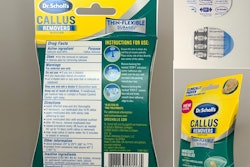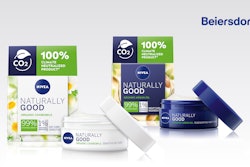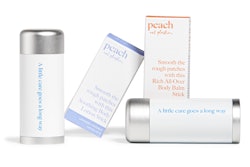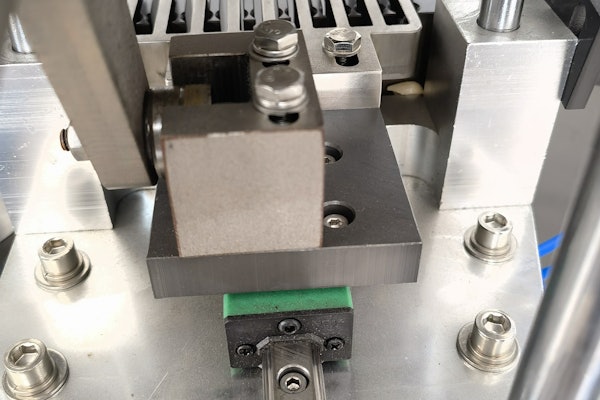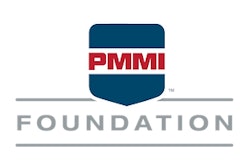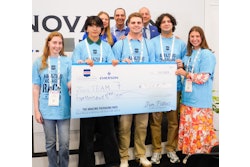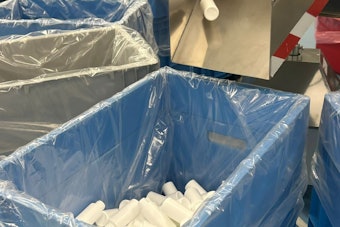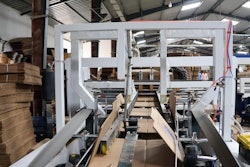Quick hits:
- A new barrier resin technology reduces the amount of resin required to mold and craft high-density polyethylene (HDPE) bottles.
- This is accomplished via a nucleating agent added into the resin itself.
- The success is a combination of materials and more accurate molding using Compression Blow Forming (CBF).
- GSK is also implementing sustainability in renewable energy generation.
Related to this episode:
- GSK’s Head of Sustainability on Advil Bottles’ 20% Plastic Reduction
- 30 Sustainability Stories in Healthcare Packaging
- New Nivea Jars are Made from Bio-based Forestry Byproduct
- Visit PMMI's Business Intelligence Library and download their executive summaries of their latest reports for free
 | Read the transcript below: |
I’m Keren Sookne with Take Five Video for Healthcare Packaging.
Today we’re talking about GSK Consumer Healthcare’s new Advil Bottles that reduce plastic by 20%. The company reports this will result in a reduction of nearly 500,000 pounds of plastic in the environment annually.
Recently I spoke with Sarah McDonald, vice president of sustainability at GSK Consumer Healthcare. She explained that the reduction is made possible by a first-of-its-kind sustainable plastic technology for over the counter medicines that reduces the amount of resin required to mold and craft the high-density polyethylene (HDPE) bottles.
So how did they accomplish this? A nucleating agent is added into the resin itself. GSK worked with Dow and Milliken on the materials side and Alltrista Plastics on the component manufacturing side.
Alltrista molds bottles via compression blow forming (or CBF). In general, if you’re not familiar with this process: CBF continuously extrudes plastic, cuts it into “clumps”, and transfers the clumps into compression cavities where they are pressed into preforms and stretch-blown into finished bottles.
Ultimately the plastic reduction is a combination of materials and more accurate molding using CBF. The bottles are able to run on GSK’s existing packaging lines.
This was 7 years in the making, requiring extensive testing to ensure the barrier protection properties were the same as the existing bottle and to be sure regulatory requirements were met.
McDonald explained that because there’s no need for a discreet barrier layer, it doesn’t impact recyclability. The bottle itself is recyclable as HDPE is recyclable in the #2 stream in the U.S.
Unrelated to the resin change and CBF, GSK also implemented an 11% reduction in the weight of the caps (with the process and materials remaining the same).
The updated bottles have already begun hitting retail shelves in the U.S. The Advil portfolio will have transitioned by 2022 online and on retail shelves nationwide, with the exception of Advil “easy open” bottles.
GSK is currently looking at how they can use this resin technology in other places. This was a significant investment in time and resources to develop and they’re looking to use it in other products, in addition to pursuing other ways of reducing or taking out plastic.
Every day there are new personal care products making the switch to reusable or recyclable packaging—especially in toothpaste and oral care. Packaging World recently covered Unilever’s Recyclable Toothpaste Tube plans. GSK is also in that boat, recently committing to make over a billion toothpaste tubes recyclable by 2025 as part of its ongoing sustainability journey.
Now, this is reduction in plastic is part of a larger commitment to sustainability. Another focus for GSK is in boosting renewable energy usage, so that includes on-site electricity generation where conditions allow—particularly for solar.
In Feb 2020, GSK’s Cape Town on-site solar electricity generation went live and on-site solar in Nairobi and in Brazil are also planned to go live in 2021.
Not every location is an ideal candidate for on-site generation. So there’s also work happening with purchase agreements to source renewable electricity where on-site isn’t possible. It’s all part of their aim to use 100% renewable electricity in manufacturing sites by 2030.
Thanks and see you next time at Take Five Video with Healthcare Packaging!



